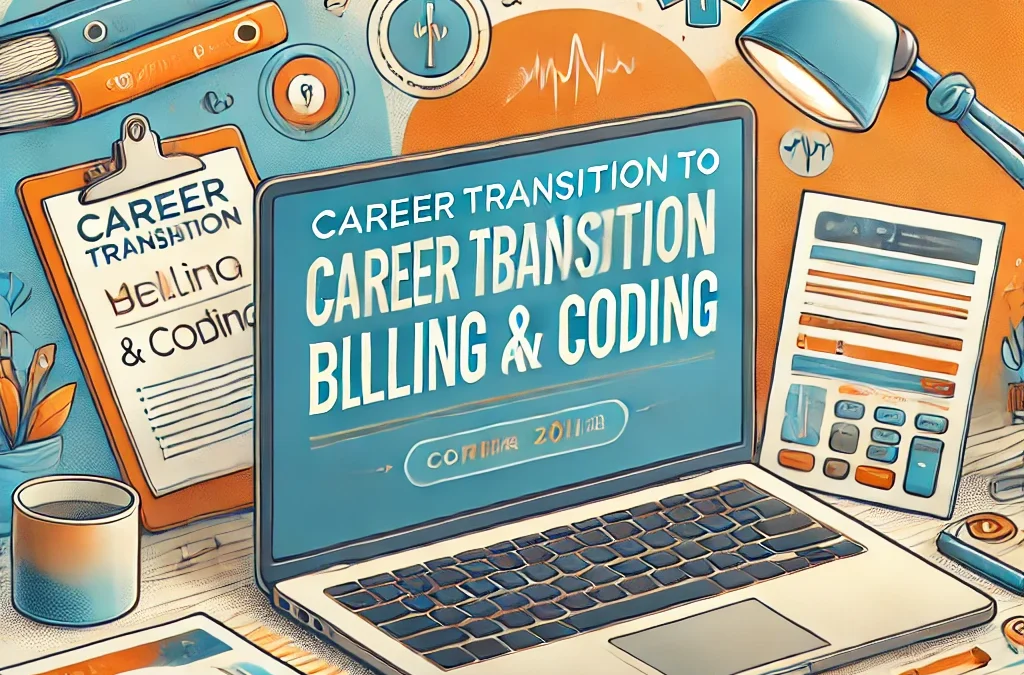Career Transition to Medical Billing and Coding
Switching careers to medical billing and coding can be a rewarding move. With high demand in the healthcare sector, this field offers
job stability, flexibility, and growth opportunities for individuals looking to make a change.
Introduction to Career Transition
The healthcare industry is growing rapidly, creating a need for skilled professionals in medical billing and coding. This career
path offers the chance to work in healthcare without direct patient care, making it attractive for those looking for a meaningful
career change.
Assessing Your Skills for the Transition
- Transferable Skills: Skills like organization and attention to detail are valuable.
- Soft Skills: Communication and problem-solving abilities are essential for success.
Educational Requirements for Medical Billing and Coding
- A high school diploma or equivalent is required to start training.
- Consider certification programs like CPC or CBCS for better job prospects.
Choosing the Right Training Program
Decide whether online or in-person classes suit your learning style. Look for accredited programs that provide hands-on practice
and offer industry-recognized certifications.
Time Commitment and Cost of Training Programs
Most programs take 4 to 6 months to complete. Costs vary, but many institutions offer payment plans or financial aid to help with
tuition.
Gaining Practical Experience During the Transition
- Participate in internships or externships to build experience.
- Look for volunteer opportunities in healthcare settings.
Creating a Transition Plan
- Set achievable short-term and long-term goals for your transition.
- Balance study time with existing work or personal commitments.
Updating Your Resume and Job Search Strategy
- Highlight your transferable skills and certifications prominently.
- Customize your resume to align with medical billing job descriptions.
Preparing for Interviews in the New Field
- Practice answering common medical billing interview questions.
- Demonstrate your enthusiasm for the role and new career path.
Overcoming Challenges in Career Transitions
It’s normal to experience self-doubt when making a career change. Stay motivated by connecting with others in the field and setting
small, achievable milestones.
Remote Work Opportunities in Medical Billing and Coding
- Many companies offer remote roles for certified coders.
- Ensure you have the necessary tools, like a reliable computer and internet.
Continuing Education and Career Advancement
Stay current by renewing your certifications and earning CEUs. Specializing in areas like cardiology or orthopedics can also open
new doors for career growth.
Conclusion – Make the Move to Medical Billing and Coding Today
A career transition to medical billing and coding is achievable with the right planning and resources. Whether you’re looking for a
new challenge or greater flexibility, this field offers opportunities for personal and professional growth.
FAQs
How long does it take to transition into medical billing and coding?
It usually takes 4 to 6 months of training to start your new career.
Do I need prior healthcare experience for this career?
No, many programs are designed for beginners.
Are remote jobs available for new coders?
Yes, many companies offer remote roles for certified coders.
What certifications are most valuable in medical billing?
The CPC and CBCS certifications are highly regarded in the industry.
How can I stay motivated during the transition?
Set goals, track your progress, and connect with others in the field for support.


Recent Comments